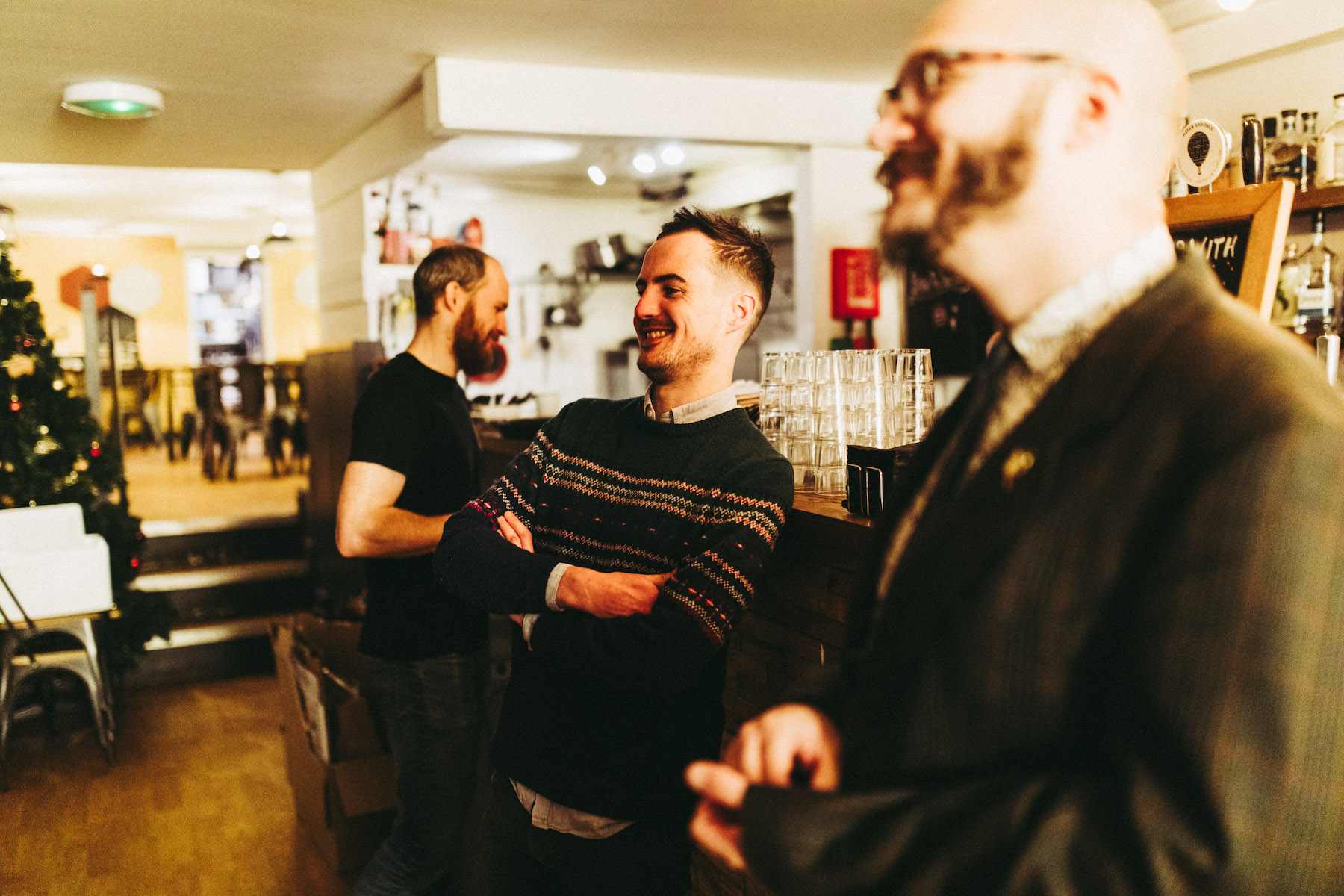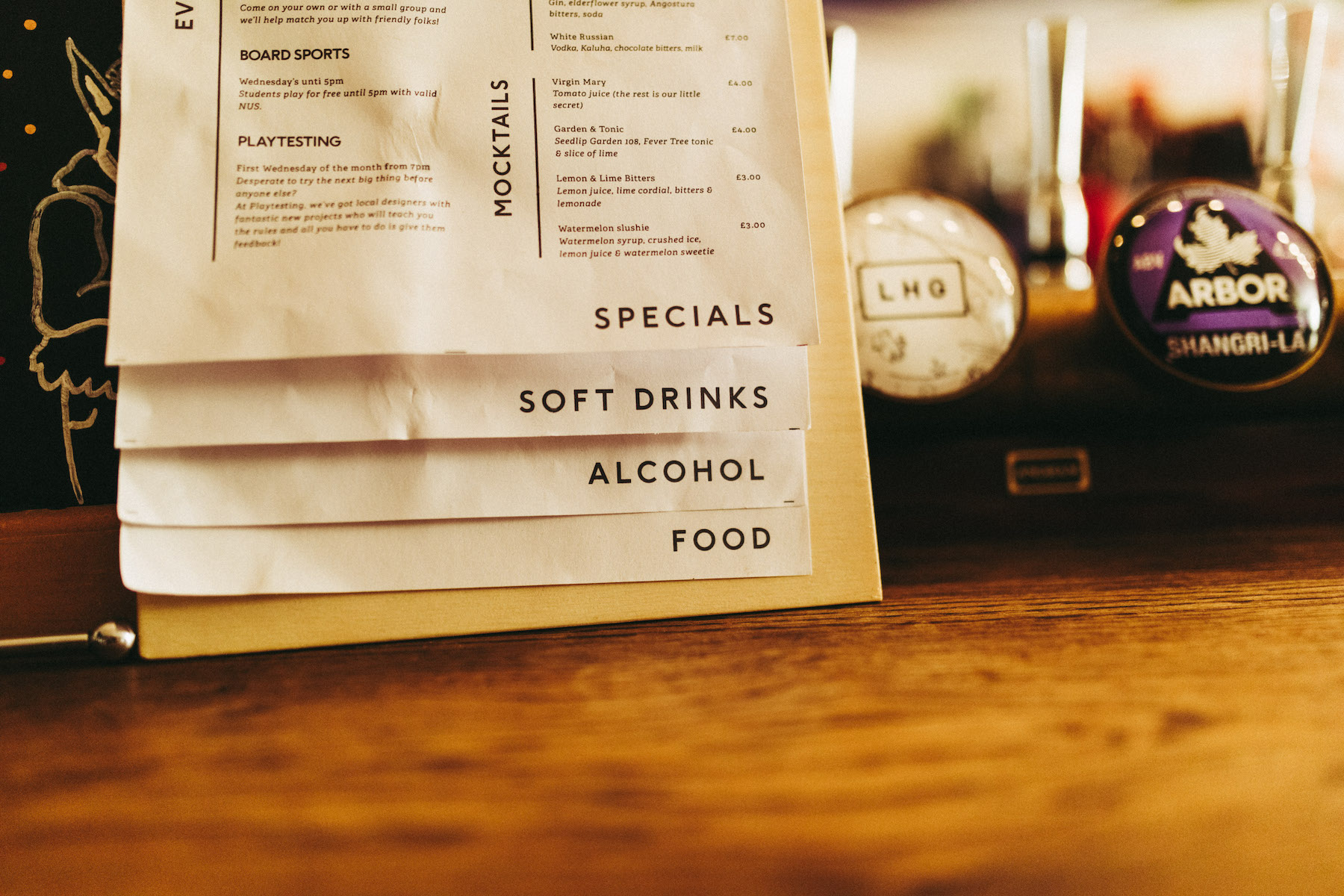Planning
Article
How Chance & Counters used personal experience to carve out a niche

Board game café Chance & Counters was founded on a simple belief that most business owners can relate to – that something could be done better.
Launched after a Kickstarter campaign was fully funded in less than two weeks, Chance & Counters combines board games with high quality food and drink. The business has built up an engaged customer base and expanded to two other cities.
We spoke to co-founder Steve Cownie about the company’s customer-first approach, company culture and how it keeps the concept fresh during growth.
How it all started
Chance & Counters opened its doors in Bristol’s Christmas Steps Arts Quarter in May 2016. It was an immediate success, although the early stages of its journey were typically rocky. Building work delayed the opening three times and the café’s alcohol licence only arrived 48 hours before the first customer was served.
As Steve explained, the high number of pubs and bars in the area made the council suspicious of new licence applications. A nearby pub had a chequered relationship with neighbours too, so the team had to spend a lot of time reassuring the locals that the café wouldn’t be disruptive.
Steve is a self-described relentless optimist, but admitted he’s blocked some of the early days of the business from his mind.
“Looking back, I think I’ve got PTSD about it. The first few services were probably chaos. Realistically, it was absolute bedlam,” he said.
Focus on the customer experience
Much of the café’s appeal comes down to the team’s determination to prioritise the customer experience. With plenty of pubs in the area offering a shelf of board games, Chance & Counters stands out by having staff on hand to explain the rules of each game. A partnership with Cardiff-based retailer Rules of Play means a selection of customers’ favourite games are available to buy too.
The food at Chance & Counters is locally sourced and drinks come from Bristol-based companies like Clifton Coffee Roasters, Psychopomp Microdistillery and Good Chemistry Brewing. It’s helped to ensure the café stands up in its own right in Bristol’s fiercely independent hospitality scene.
“You have to earn the trust of your customers. We charge £5 a head, so we’re always looking at what that £5 is doing,” Steve said.
Team and vision alignment

To develop a friendly and informal atmosphere, building a close-knit team has been key.
The team wanted to create a “third space” that would be halfway between being at home and being out. It would be cosy and relaxed to make it feel like home, but you would be served food and waited on. As Steve explained, they wanted the café to feel like a friend’s house: “It’s a place where your guard is down because it’s instantly welcoming.”
Several of Chance & Counters’ first employees were people who had backed their Kickstarter campaign. Another was a longtime friend from Birmingham who had first introduced them to board games.
It helped to have staff on board who were already fully invested in the company’s purpose, but Steve told us that it was tough to learn to delegate. Although the team had created the business with the intention of growing it, they were protective of their roles in the early days.
“After about a year and a half, we put a general manager in place and all took the same Saturday off. We were checking our phones every five minutes thinking is it on fire, have they run out of smoothies? It’s a time we look forward to now though. We put in six months of work, so you know everyone’s got it and you’ve done everything you can to remove roadblocks,” he said.
Culture can take time to develop
In the last year, Chance & Counters has opened up cafés in Cardiff and Birmingham. Replicating the culture of their Bristol café elsewhere hasn’t been easy because the team has had so long to mesh together. Many of their first hires still work there and they often go to someone’s house to play a board game after work.
Most recently, the head chef’s four-year-old son fell over and had to go to A&E on a busy evening. A number of people who were off for the day volunteered to help to take him to hospital.
“Luckily he was fine, but the rallying around was amazing. Seeing the team deal with this and have each other’s backs was so heartwarming. It was unexpectedly one of the most satisfying parts of the business. Culture like that makes me super proud and I hope we can keep it up everywhere,” Steve said.
When Chance & Counters opened up their second site in Cardiff, it initially felt “jarring” that the team didn’t spend as much time together. When work finished, everyone would just go home.
Steve emphasises that it’s important for businesses to be patient when it comes to company culture. If you have a tight-knit team at other sites, it’s natural that your expectations will be high when you expand. However, staff investment in the business and each other will come with time.
Regular change keeps a business fresh

It’s essential to avoid the trap of focusing on expansion and letting the original concept go stale. Steve recommends that businesses regularly review the offering and make tweaks to keep things fresh for customers. At Chance & Counters, the team introduces new games and switches up the seasonal menu every few months.
When a new branch opens, a co-founder typically spends six months working there to get to know the team and customers in the area. Steve has relocated twice to set up the Cardiff and Birmingham sites and admitted the upheaval isn’t easy – but he can’t picture anyone else doing it.
“It’s hard to imagine sending someone to set up a Chance & Counters and not seeing it until after a month. Each city has been so different and we don’t want to do a one-size-fits-all approach. We don’t want every Chance & Counters to follow exactly the same format,” he added.
This experience helps the business to focus on who the current customers walking through the door are – not who walked through six months ago. As Steve puts it, it’s a perilous way forward if you start losing touch with customers.
Originally, the core audience of Chance & Counters were avid gamers who had backed its Kickstarter campaign. Now, its audience has shifted to a more varied demographic. In the daytime, the café attracts the freelance crowd too – people with laptops who just want a cup of coffee and a slice of cake.
Adapt to changing customer expectations
During growth, Steve advises other business owners to recognise changing customer expectations. If customers are making a reservation weeks in advance, their expectations will inevitably be higher than if you have a walk-in service.
“We’re now full so far in advance. You get the type of people that are making plans to come a week or two ahead, so there’s more expectation. You don’t book a pub, so you don’t have any set expectations there,” Steve said.
“Imagine if you rallied together a group of people into committing to something a few weeks ahead, then you arrive and there’s not any food you want or they’ve sold out of something else. You’re going to be pissed. It keeps us motivated to keep up with expectations.”
The next step for Chance & Counters is to expand further. In addition to finding a bigger Bristol site, the team has plans to open another two sites in different cities.
The main challenge will be moving outside of the comfortable proximity of the Bristol site. Cities like Sheffield, Leeds and Edinburgh have thriving independent scenes, but would be a huge leap from their South West of England base. If something happened, it would take the founders three to four hours to arrive. Hiring someone local to take on a senior leadership role will be crucial.
Once they hit five sites, Steve explained, the team will see how they’re feeling: “At that point, we’ll see if we’ve scratched the itch enough.”